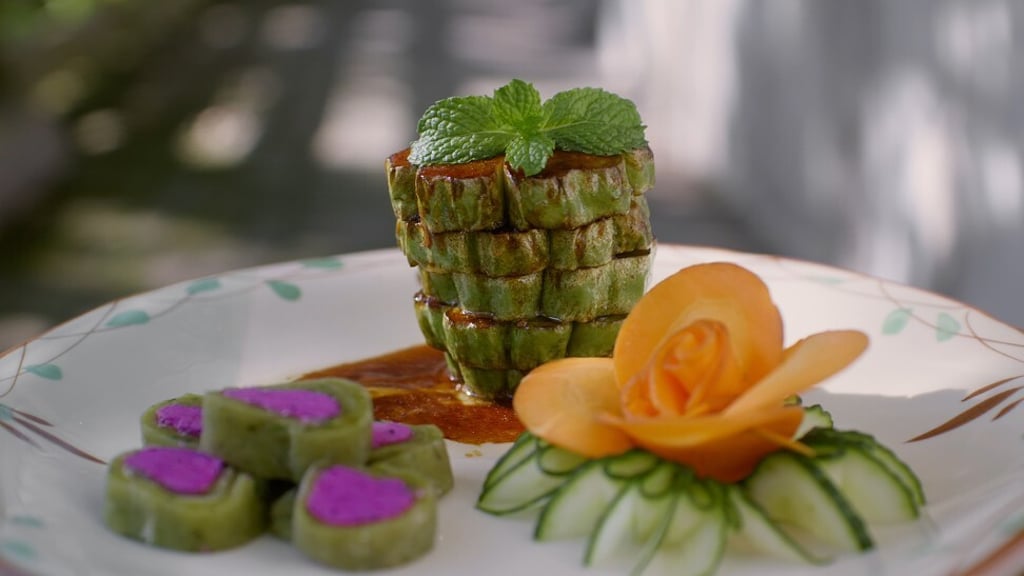He once struggled to put food on the table for his ailing family – today, this chef shares his mastery of Cantonese cuisine with diners
- Zhu Nengqing faced steep hospital bills for his wife, daughter and mother before a Guangdong government-run chef training scheme led him out of debt
- With the skills developed in the programme, he created a signature dish that has become a popular menu item at his farm-to-table restaurant
In a village in Guangdong province, chef Zhu Nengqing can be seen crouching in the fields to inspect his crops of vegetables before going to his kitchen at Xueshan Linyuan Agritainment restaurant to start his daily routine.
Zhu washes a small squash known as a chayote, pats it dry, then cuts it into several rounds and meticulously fills the centre of each one with a meat mixture. After they are steamed to perfection, he serves them on platters to a group of waiting guests. Diners marvel over Zhu’s culinary creation, for which he is famous at his farm-to-table restaurant.
His signature dish of stuffed chayote is more than a popular menu item – it is a representation of hard work instilled with years of sweat and tears. It also helps tell a defining chapter of the chef’s life story, in which he was once so poverty-stricken that he struggled to attain enough food for himself and his family as they faced multiple medical issues.
Zhu, 47, was born and raised in Jinxing village, Shaoguan, in Guangdong province. Despite the breathtaking hilly landscapes and scenery there, life has not exactly been idyllic for the villagers. For decades, they have lived a tough farming life, nursing a small range of crops year-round. These vary from small watermelons and snow peas to aubergines and chillies. But it is the chayote that has gained a sort of iconic status in the area, grown by all the farms in the village.

Chayotes not only play a key role in how the villagers make an honest living, they are also a big part of the local diet. Rich in vitamins and nutrients, they are a versatile ingredient in Cantonese cooking that work particularly well in double-boiled soups, stir-fries and cold appetisers, and can also be made into pickles.
